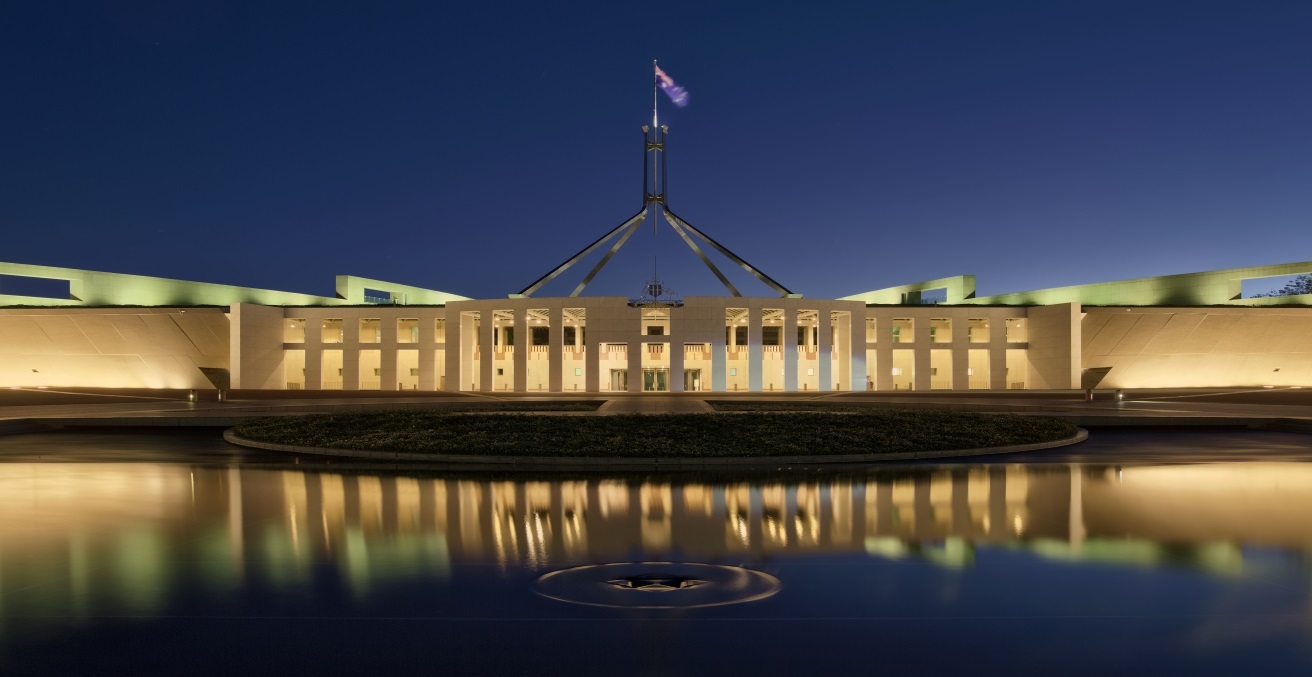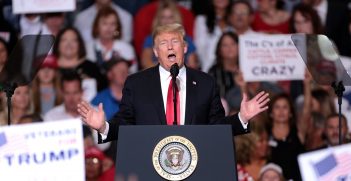22 March 2024: The Week in Australian Foreign Affairs

This week in Australian foreign affairs: Chinese FM Wang Yi in Canberra for Foreign and Strategic Dialogue; funding to UNRWA reinstated and upgraded; Marles and Wong host AUKMIN; Watts to attend Summit for Democracy in ROK, and more.
On 21 March, Prime Minister Anthony Albanese, along with Deputy Prime Minister and Minister for Defence Richard Marles Minister for Defence Industry Pat Conroy, issued a media release announcing the Government “has entered the single largest defence export agreement in our nation’s history, to supply Australian-made armoured vehicles to Germany.” Under an agreement now passed through the German parliament “more than 100 Boxer Heavy Weapon Carrier vehicles will be built by Rheinmetall at its Military Vehicle Centre of Excellence in Redbank, Queensland and exported for use by the German Army.” The in-principle agreement occurred on Albanese’s visit to Berlin in July last year.
On 19 MARCH, Marles joined Minister for Foreign Affairs Penny Wong in announcing the next iteration of AUKMIN. Marles and Wong will meet with their counterparts, UK Secretary of State for Foreign, Commonwealth and Development Affairs David Cameron and Secretary of State for Defence Grant Shapps. According to the release, “AUKMIN 2024 is an opportunity to identify new ways we can grow and strengthen collaboration in key strategic areas of our partnership.” The Secretaries of State will visit Canberra on Thursday, before travelling on to Adelaide for AUKMIN Consultations on Friday.
Marles joined Shapps and United States’ Secretary of Defense Lloyd J. Austin III on 22 March in a joint AUKUS Trilateral Statement. The AUKUS partners “welcomed the announcement of the selection of ASC Pty Ltd and BAE Systems to build Australia’s SSN-AUKUS submarines, and the selection of ASC as Australia’s nuclear-powered submarine sustainment partner.”
On 15 March, Marles and Minister for Foreign Affairs Penny Wong released a joint statement announcing that Australia “will lift its temporary pause on funding for the United Nations Relief and Works Agency (UNRWA), following steps to strengthen the integrity of UNRWA operations.” The government is finalising an “updated funding agreement that will include stringent conditions such as guarantees of staff neutrality, and confidence in supply chains.” The government has assured that humanitarian funding “will go directly to those in need, satisfying Australia’s rigorous humanitarian controls, sanctions and legal requirements.” The Albanese government since taking office has doubled Australia’s annual funding to UNRWA to $20 million each year. The Australian government decided to pause $6 million in funding following serious allegations resulting in “UNRWA’s dismissal of staff alleged to have been involved in the Hamas terrorist attacks of 7 October.”
Wong also announced that the Australian government was finalising an updated “funding agreement that will include stringent conditions such as guarantees of staff neutrality and confidence in supply chains” in its support for humanitarian efforts in Gaza. For the time being, it is considered that there is “no way to deliver it [food supplies] across the border into Gaza […] without Israel’s cooperation.” Wong also announced the government will “support efforts by Jordan and the UAE to assist with the delivery of vital humanitarian aid to civilians in Gaza,” organising a “C-17A Globemaster, an RAAF asset, [to] deliver a supply of 140 Australian Defence Force aerial delivery parachutes for use in humanitarian assistance drops by Jordan and the UAE.” “Australia will also provide an additional $4 million to UNICEF to provide urgent services, including for women and children, and $2 million to the new mechanism of the UN Senior Humanitarian and Construction Coordinator for Gaza to facilitate expanded humanitarian access into Gaza. These additional measures bring Australia’s total support to Gaza to $52.5 million since this crisis began.”
On 20 March, Wong hosted Chinese Foreign Minister Wang Yi for the sixth Foreign and Strategic Dialogue. The two foreign ministers discussed ongoing bilateral engagements, “including consular cases, defence and trade, and to expand dialogue in key areas of importance, such as the Pacific, climate and energy cooperation and enhancing understanding and transparency.” The two also exchanged “frank” words on the sentencing of Dr Yang Jun and other Australian death penalty cases. The opportunity also provided a chance to discuss “the progress of the removal of trade impediments on barley, wine and other exports,” with Wong reiterating Australia’s “desire for the removal of remaining impediments on beef and lobster. Wong also raised Australia’s concern over human rights, “including in Xinjiang, Tibet and Hong Kong. I expressed our concern – our serious concern – about unsafe conduct at sea,” and Australia’s “desire for peace and stability across the Taiwan Strait and in our region.”
On 17 March, Assistant Minister for Foreign Affairs Tim Watts announced he will travel to the Republic of Korea (ROK) to represent Australia at the third Summit for Democracy. “The Summit will bring together governments, civil society organisations and academics around the theme of ‘Democracy for Future Generations’, to discuss how we can safeguard and strengthen democracy in a time of unprecedented change.” The summit will focus specifically on artificial intelligence and the opportunities and risks it poses to democratic rights, institutions and governance. While in Seoul, Watts “will meet with ROK officials, as well as partners from across the region, to advance discussions on partnering to shape an open, stable and prosperous Indo-Pacific.”
Dr Adam Bartley is the managing editor for AIIA’s Australian Outlook and weekly columnist for The Week in Australian Foreign Affairs. He is a former Fulbright Scholar and resident fellow at the Elliot School for International Affairs, the George Washington University. Adam also has positions as post-doctoral fellow at the Centre for Cyber Security Research and Innovation RMIT University and as program manager of the AI Trilateral Experts Group. He can be found on Twitter here.
This article is published under a Creative Commons License and may be republished with attribution.





